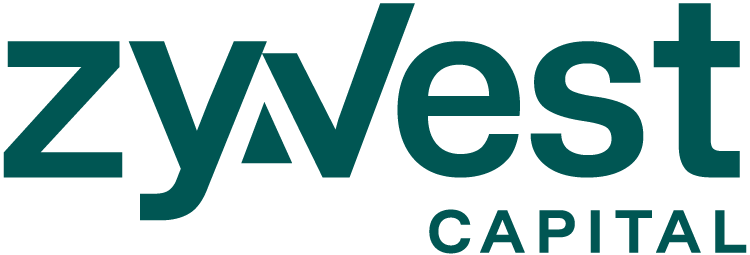15 Best Investment Options for Salaried Person
Written by
Last updated on
February 2, 2026

sec1
Are you someone with a fixed and regular salary who often finds it difficult to fulfil your dreams due to a fixed salary or looking for some investment options to create wealth for your future? Then this piece is for you. The rise of prices in commodities, real estate, goods, and services has severely affected the financial plans of salaried employees who are relying on a single and fixed income. Therefore, developing investment plans is necessary for salaried employees aiming to secure financial goals and achieve long-term objectives.
With a multitude of investment options, finding the ideal investment plan can be difficult. Each investment plan offers a wide degree of risk and return. Navigating the right investment plan is crucial for securing the financial landscape. To help you find the right investment plan, we have drafted a detailed outline of the best investment plans for salaried employees. In addition, this article also explores the factors and other dynamics involved in choosing these investment options. Before we dive into these investment plans, let’s understand what an investment plan is.
sec2
What is an investment plan?
An investment plan is a detailed financial roadmap specially designed to help investors grow their money carefully. It begins with setting financial goals such as developing investment portfolios, saving for retirement, funding education, or building wealth. Investing across various assets is highly important to support diverse financial objectives and to minimise the risk associated with it. Developing an investment plan fosters a holistic approach to managing risks and cultivating strategies to align with the landscape and dynamics of the investment plan, ensuring a focus on achieving financial objectives.
sec3
Top investment portfolios for salaried people
1. ULIPs
Unit Linked Insurance Plan (ULIP) is an insurance plan that provides both a lifelong investment option and life insurance to protect your family financially. ULIP holders have the flexibility to invest in equity, debt, or a combination of both funds as per their choice. ULIPs are developed to help secure financial goals and improve wealth creation.
2. Mutual funds
A mutual fund is an entity that pools money managed by professional fund managers from various investors who share similar objectives and invest it in securities such as stocks and bonds. As the investment gains, fund managers distribute the collective profit from the investment equally among the investors. Investors can invest in mutual investments in two different ways:
3. Direct equity
Direct equity is any kind of direct investment in the stock market, such as buying a share of a company. Investors need a Demat account opened in any authorized brokerage platform to directly invest in the stock market.
Every individual who holds a share of a company owns a portion of the company. Investors can expect a return from the stock market in the form of capital appreciation while the stock prices rise and in the form of dividends. At the same time, it will lead to unrealised losses when the stock prices go down. Therefore, understanding and learning about the stock market is crucial for making informed decisions while investing in stocks.
4. Gold investments
Gold investments are considered highly beneficial as the prices of gold usually fall for a short time and always make a stronger upturn. However, investing in physical gold can be risky and relatively less desirable as compared to digital forms due to the possibility of theft and making charges.
Investing in gold comes in various forms, including purchasing biscuits, coins, bars, or jewellery. Gold can be purchased through any authorised retailer or from financial institutions.
5. Sovereign gold bonds
Sovereign gold bonds are government-owned securities denominated in grams. They are one of the digital alternative ways to physical gold investing.
Sovereign gold bonds can be purchased directly or from agents through licensed stock exchanges, private or foreign banks, post offices, and others.
Investing in sovereign gold bonds is highly beneficial for an investor as it secures against the related risks of holding physical gold. Moreover, it also pays a constant return twice a year while enjoying the capital appreciation as per the increase in the price of gold overtime.
6. Fixed deposits
A fixed deposit (FD) is another form of investment option that enables depositors to credit their money for a fixed period and earn a fixed return during the chosen tenure or maturity based on their interest rates. An FD becomes attractive as it provides a higher and guaranteed return than the normal savings bank account without having to face the market risks like in stocks and other equity-related products.
Fixed deposit investment is carried out through various private and public sector banks. The interest rates on fixed deposits vary from one bank to another.
It is crucial to understand and cater to the requirements of different customer segments to ensure the best returns when choosing a fixed deposit investment.
7. Public provident fund
A public provident fund is a long-term investment strategy designed to encourage savings for retirement plans. This investment scheme is offered by the government of India.
Investors can deposit as little as Rs. 500 up to Rs. 1.5 lakh per financial year. This investment plan offers attractive interest rates and tax benefits under Section 80C of the Income Tax Act.
This investment scheme guarantees potential returns, making it a secure and dependable investment option for salaried individuals.
8. Forex trading
Forex trading is another opportunity to make returns as forex markets offer high liquidity and leverage for investors. Unlike stock market trading, forex trading can be done any time of the day as it is open 24 hours a day, excluding weekends which makes it more appealing to salaried people who are on the job during the day time.
Understanding the forex market and learning the dynamics of the currency pairs are important. Additionally, continuous learning and staying updated with geo-political events are required to have a solid insight into market trends.
9. National pension scheme
The National Pension Scheme is a long-term investment plan initiated by the Indian government to provide retirement benefits to all citizens. It works by contributing to the savings during the working years.
Continuous contribution is an effective investment method to build up pension wealth. This investment plan encourages systematic savings, which aim to secure financial goals and a retirement plan.
Contributing to the national pension scheme can be a good investment option for a salaried person looking for early retirement.
10. Recurring Deposit
A recurring deposit (RD) is an investment scheme where an investor is required to deposit a fixed amount monthly for a predetermined period.
Similar to the traditional fixed deposits, interest occurs on these deposits. Investors can withdraw the amount at the maturity date and continue investing in the scheme without closing it.
This investment scheme is offered by banks, financial corporations, and others. It allows investors to make regular deposits and earn potential returns on the investment.
11. Sukanya Samriddhi Yojana
Sukanya Samriddhi Yojana is an investment scheme under the Beti Bachao Beti Padao campaign, aiming to secure the future of girls by generating funds for education and marriage.
The minimum amount required to deposit in this scheme is Rs. 250, and the maximum contribution is Rs. 1.5 lakh. Investors must invest the minimum amount annually for up to 15 years from the date of account opening.
This investment plan can be opened by a parent or guardian in the name of the girl child. The benefits can be withdrawn when the girl reaches 21 years of age or upon her marriage.
12. Initial public offerings
Initial public offerings, also known as IPOs, are the process by which private companies offer their shares of stock to the public for the first time. The price of the shares is determined based on the valuation of the company and market conditions.
IPOs are facilitated by banks and other financial institutions to allow the transition of the company from private ownership to public ownership. Private companies use IPOs to generate capital to diversify their holdings and create liquidity by selling a position of their private share or the whole company.
IPOs are extremely beneficial to investors because they provide an opportunity to invest in a company’s growth early on for a reasonable price, potentially benefiting from gains as the company grows. Moreover, many of the IPOs get listed with a premium than the issue price which also makes a good IPO attractive to the investor.
13. Real estate
Real estate investments are another investment option for salaried individuals. Real estate investing uses real estate properties as investment vehicles.
Real estate investment involves purchasing, managing, owning, renting, or selling real estate properties for profit.
Investors can purchase any form of real estate property, such as commercial, residential, or industrial properties, and generate profit from them.
Individuals can also profit indirectly from Real Estate Investment Trusts (REITs) or real estate mutual funds.
14. Company fixed deposits (CFD)
A company fixed deposit, or corporate deposit, is a fixed investment plan where investors invest a fixed sum for a certain period and gain benefits at fixed interest rates.
Company fixed deposit investment plans are usually offered by non-banking financial companies (NBFCs) or corporate entities to investors. CFDs offer a higher rate of interest than regular banks and provide a predictable and attractive return on investment.
However, they carry a risk related to the credit risk associated with the issuing company. Therefore, obtaining detailed information on the company’s background, repayment history, and credit rating may help find the ideal company fixed deposit plan.
sec5
Factors for choosing the best investment plan
Investing in all the diverse investment plans may not be practical. Therefore, choosing ideal investment options is crucial. There are certain factors to be considered while making an investment decision, such as the following:.
Financial Goals: One can select the investment options that help achieve that particular goal considering the time horizon, the amount to be invested, etc.
Risk-Tolerance: Investment always comes with certain risks. Therefore, understanding the degree of the risk before investing is highly important. If you do not want any significant risk, choosing fixed-return investment options backed by the government would be a great option, ensuring minimal or no risk. Whereas if you have a high-risk appetite, you can always go for equity-based investments or similar options so that you can have a higher possibility of the returns too.
Monitoring performance: Obtaining a detailed report on the performance of the investment plans and comparing them with other investment options may help identify potential gains and other benefits.
Lock-in Period: The lock-in period of an investment plan is highly crucial. Some investment plans’s lock-in periods exceed 3-5 years, which indicates that the investor cannot withdraw within the given lock-in period. Therefore, understanding the financial goal and selecting an investment plan that is suitable for the timeframe is critical.
Diversifying the investment options as per the financial plan may help to build a solid investment portfolio for a salaried person. Having a diverse investment portfolio offers flexibility to manage money and achieve financial goals earlier than the predetermined interval. Furthermore, it provides the opportunity to take early retirement, pursue other interests, or travel the world.
sec5
Conclusion
Among the best investment options for salaried people, all these investment plans offer flexibility and great returns on investment. The best investment option varies from individual to individual. Everybody has a specific set of financial goals and risk tolerance.
Investors can diversify their investment options by investing in various plans. At the same time, the investment options must align with the financial goals. Investors can choose low-risk investments as well as higher-risk investment options depending on their risk appetite.
High-risk investment options offer relatively high returns. For those who look to secure their financial future and earn regular income, investing in corporate fixed deposits, gold investments, real estate, or dividend stocks may help them earn a potential return.
Consider your financial goals and risk tolerance before investing. Choose investment options that align with your financial objectives. Cultivate a disciplined and holistic approach to maintain consistency as well as make informed decisions.
Happy investing..!!!
Author Info
Abdul Latheef K is a Researcher at Jawaharlal Nehru University, New Delhi. He is also an Author, Educator, and Expert in personal finance and Investment. His areas of interest comprise the Stock Market, foreign capital flows, and Open Economy Macroeconomics.
Disclaimer:
The information provided on this blog is for general informational and educational purposes only and is not intended as financial, investment, legal, or tax advice. While we strive to ensure accuracy, completeness, and timeliness, the financial world is dynamic, and content may become outdated or subject to change. Always conduct your own research or consult with a qualified financial advisor before making any investment or financial decisions. The authors and publishers of this blog are not liable for any losses or damages arising from the use or reliance on the information presented.
sticky end
Pages
Plans
Legal
Zyvest Capital Prime Ltd (www.zyvest.com) is licensed and regulated by the Financial Services Commission (FSC) of Mauritius as an Investment Dealer (Full Service Dealer, Excluding Underwriting) under Licence No. GB25204874 | Code: SEC-2.1B, issued on 29 August 2025.
Risk Statement : An investment in derivatives may mean investors may lose an amount even greater than their original investment. Anyone wishing to invest in any of the products mentioned in www.zyvest.com should seek their own financial or professional advice. Trading of securities, forex, stock market, commodities, options and futures may not be suitable for everyone and involves the risk of losing part or all of your money. Trading in the financial markets has large potential rewards, but also large potential risk. You must be aware of the risks and be willing to accept them in order to invest in the markets. Don’t invest and trade with money which you can’t afford to lose. Forex Trading are not allowed in some countries, before investing your money, make sure whether your country is allowing this or not.
You are strongly advised to obtain independent financial, legal and tax advice before proceeding with any currency or spot metals trade. Nothing in this site should be read or construed as constituting advice on the part of Zyvest Capital Ltd. or any of its affiliates, directors, officers or employees.
Contracts for Difference (CFDs) are complex financial instruments and come with a high risk of losing money rapidly due to leverage. A significant percentage of retail investor accounts lose money when trading CFDs with providers. You should consider whether you understand how CFDs work and whether you can afford to take the high risk of losing your money.
CFDs are not suitable for all investors. Ensure you fully understand the risks involved and seek independent advice if necessary. Past performance is not a reliable indicator of future results. Please read our full Risk Disclosure Statement, Terms and Conditions, and Privacy Policy before engaging in any trading activity.
Disclaimer : Zyvest Capital Ltd. does not provide services for citizens/residents of the United States, Cuba, Iraq, Myanmar, North Korea, Sudan. The services of Zyvest Capital Ltd. are not intended for distribution to, or use by, any person in any country or jurisdiction where such distribution or use would be contrary to local law or regulation.






